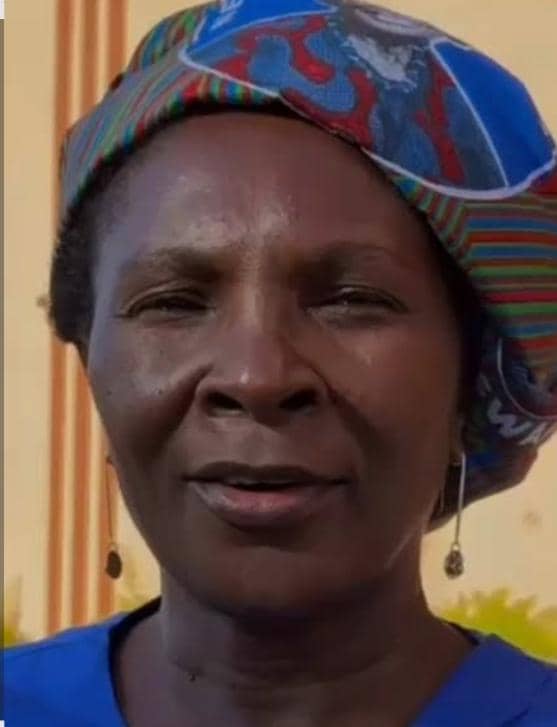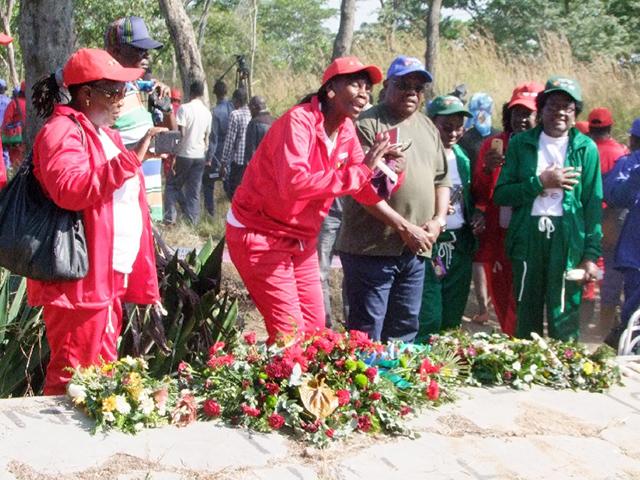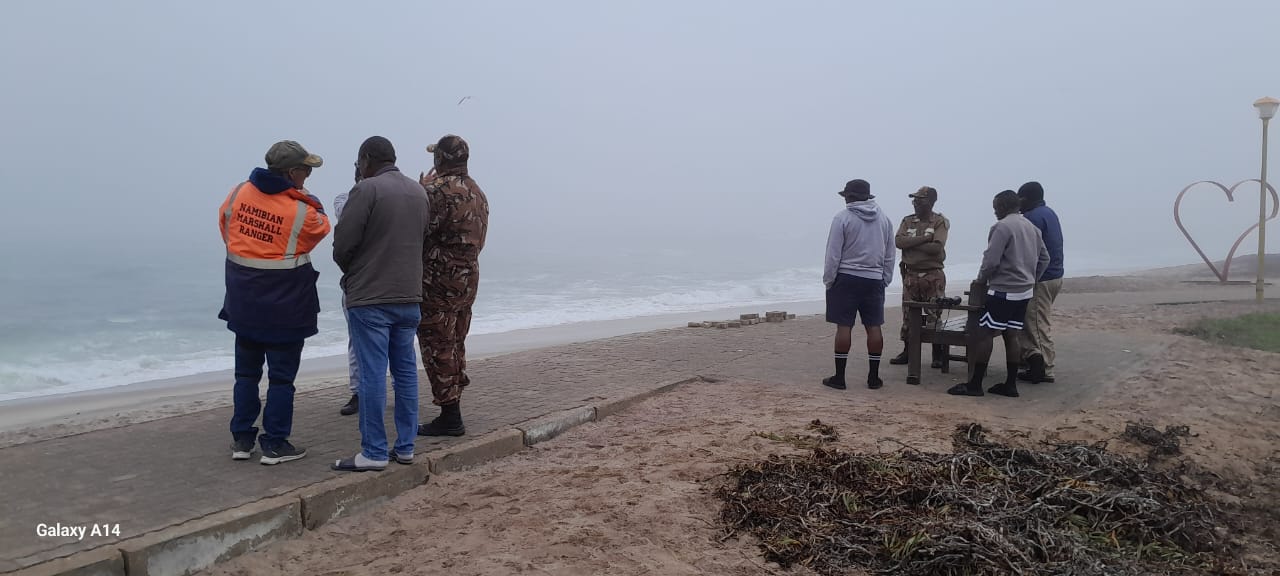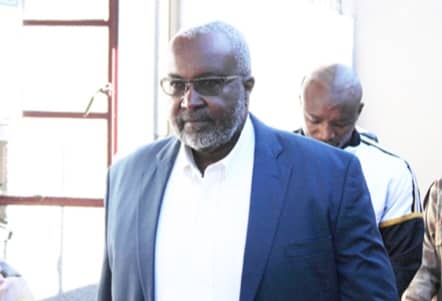DRIVERS of luxury vehicles like Volvos, Mercedes-Benzes and Camrys should be allowed to travel at up to 160 kilometres an hour on open roads, bakkies and small cars should be limited to 120 km/h, and trucks and buses should be slapped with a limit of 80 km/h.
This was proposed by Swapo MP Jeremiah Nambinga during debate in the National Assembly at the end of last week on how to combat the carnage on Namibian roads. Parliamentarians all agreed that alcohol, reckless driving, speeding, trucks driving at night and disregard for traffic rules caused accidents, as the horrific statistics showed over the past festive season, but were at a loss on how to get to grips with the problem.Swapo’s Jeremiah Nambinga rose to say that driving faster than the 120 km/h speed limit was “not dangerous” for some cars.”Sedans like Volvo, Mercedes Benz, Camry (mostly driven by top Government officials) and the likes whose speedometers go over the limit of 180 km/h, should be allowed a limit of up to 160 kilometres per hour,” Nambinga proposed in all earnestness.”My suggestion is based on the simple fact that if one has experienced driving any of these cars, you will agree that you are likely to fall asleep driving at 120 km/h, because the car does not seem to be moving.This is dangerous because the driver can easily fall asleep under such circumstances, thereby creating a danger to other road users,” Nambinga said.Bakkies and small cars, “whose speedometers do not go beyond 180 km/h”, should drive only up to 120 km/h, he said.He also proposed that trucks, buses “and other heavy vehicles” should drive at only 80 km/h on open roads.Safety and Security Minster Peter Tsheehama, under whose control the Police and Government traffic officers fall, entered the debate and said all aspects of traffic management needed to improve.He proposed that Government should have one centralised institution to handle traffic management, like traffic police, transport inspectors and a proper recording system of all accidents, the latter to be linked with Natis.All traffic offences and fines should also be recorded there.”Currently, the Namibian Police and in particular the traffic units are not adequately equipped with essential resources to carry out their duties,” Tsheehama told the House on Thursday.He suggested that long-distance passenger transport, such as buses, should be legally registered and regulated.”I propose that the Road Traffic Transport Act be amended to allow for proper regulation of public transport in terms of having terminals with specific times for departures and arrivals, to have local authorities get involved in regulating taxis and that each local authority should decide on a uniform colour for local passenger transport fleets.”Jurie Viljoen of Monitor Action Group (MAG) said that more traffic and law enforcement officers should be deployed on public roads, even over weekends.”On weekends you do not see traffic officers, neither in the streets of Windhoek, nor on highways – drivers don’t care about adhering to traffic rules because there is nobody to enforce the traffic laws,” Viljoen criticised.During the past festive season he spent a month at the coast, Viljoen added, but had “never seen any law enforcement person” on the dangerous road between Swakopmund and Walvis Bay.He drew a comparison with Botswana, where, according to him, traffic cops were “everywhere” and carried out their job well, with the result that road users in Botswana were far more disciplined than in Namibia.Viljoen added that he had recently written to the Ministry of Safety and Security to report a case where law enforcement officers at a roadblock near Outjo demanded and took cash fines from tourists.The MAG politician called on Government to strip traffic offenders of their licences or even confiscate their vehicles.Fines should also be drastically increased, he recommended, and traffic rules should already be taught at kindergartens and primary schools.Parliamentarians all agreed that alcohol, reckless driving, speeding, trucks driving at night and disregard for traffic rules caused accidents, as the horrific statistics showed over the past festive season, but were at a loss on how to get to grips with the problem.Swapo’s Jeremiah Nambinga rose to say that driving faster than the 120 km/h speed limit was “not dangerous” for some cars.”Sedans like Volvo, Mercedes Benz, Camry (mostly driven by top Government officials) and the likes whose speedometers go over the limit of 180 km/h, should be allowed a limit of up to 160 kilometres per hour,” Nambinga proposed in all earnestness. “My suggestion is based on the simple fact that if one has experienced driving any of these cars, you will agree that you are likely to fall asleep driving at 120 km/h, because the car does not seem to be moving.This is dangerous because the driver can easily fall asleep under such circumstances, thereby creating a danger to other road users,” Nambinga said.Bakkies and small cars, “whose speedometers do not go beyond 180 km/h”, should drive only up to 120 km/h, he said.He also proposed that trucks, buses “and other heavy vehicles” should drive at only 80 km/h on open roads.Safety and Security Minster Peter Tsheehama, under whose control the Police and Government traffic officers fall, entered the debate and said all aspects of traffic management needed to improve.He proposed that Government should have one centralised institution to handle traffic management, like traffic police, transport inspectors and a proper recording system of all accidents, the latter to be linked with Natis.All traffic offences and fines should also be recorded there.”Currently, the Namibian Police and in particular the traffic units are not adequately equipped with essential resources to carry out their duties,” Tsheehama told the House on Thursday.He suggested that long-distance passenger transport, such as buses, should be legally registered and regulated.”I propose that the Road Traffic Transport Act be amended to allow for proper regulation of public transport in terms of having terminals with specific times for departures and arrivals, to have local authorities get involved in regulating taxis and that each local authority should decide on a uniform colour for local passenger transport fleets.”Jurie Viljoen of Monitor Action Group (MAG) said that more traffic and law enforcement officers should be deployed on public roads, even over weekends.”On weekends you do not see traffic officers, neither in the streets of Windhoek, nor on highways – drivers don’t care about adhering to traffic rules because there is nobody to enforce the traffic laws,” Viljoen criticised.During the past festive season he spent a month at the coast, Viljoen added, but had “never seen any law enforcement person” on the dangerous road between Swakopmund and Walvis Bay.He drew a comparison with Botswana, where, according to him, traffic cops were “everywhere” and carried out their job well, with the result that road users in Botswana were far more disciplined than in Namibia.Viljoen added that he had recently written to the Ministry of Safety and Security to report a case where law enforcement officers at a roadblock near Outjo demanded and took cash fines from tourists.The MAG politician called on Government to strip traffic offenders of their licences or even confiscate their vehicles.Fines should also be drastically increased, he recommended, and traffic rules should already be taught at kindergartens and primary schools.
Stay informed with The Namibian – your source for credible journalism. Get in-depth reporting and opinions for
only N$85 a month. Invest in journalism, invest in democracy –
Subscribe Now!










